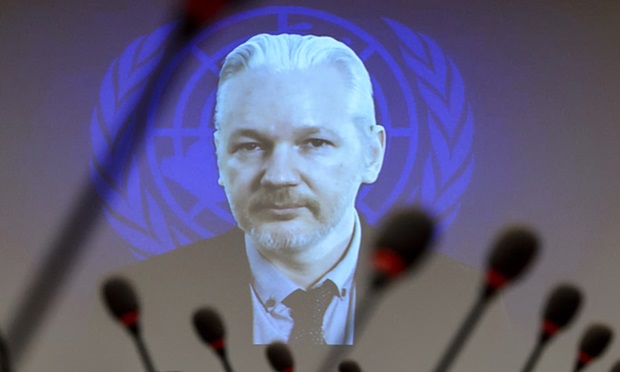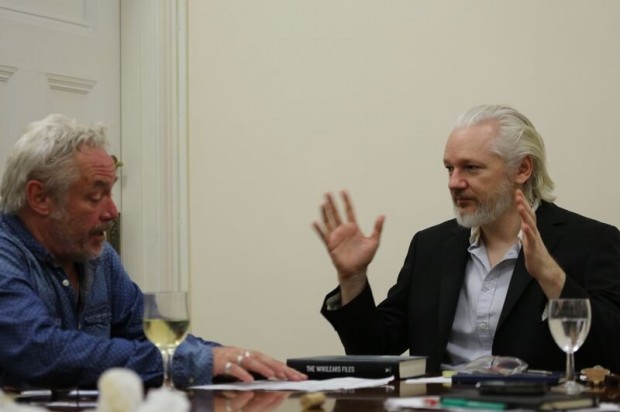
Spiegel recently interviewed WikiLeaks co-founder, Julian Assange, to talk more about WikiLeaks’ comeback, as well as his desire to assist the German parliamentary committee that is currently investigating the NSA’s mass surveillance program.
SPIEGEL: Mr. Assange, WikiLeaks is back — releasing documents proving United States surveillance of the French government, publishing Saudi diplomatic cables and posting evidence of the massive surveillance of the German government by US secret services. What are the reasons for this comeback?
Assange: Yes, WikiLeaks has been publishing a lot of material in the last few months. We have been publishing right through, but sometimes it has been material which does not concern the West and the Western media — documents about Syria, for example. But you have to consider that there was, and still is, a conflict with the United States government which started in earnest in 2010 after we began publishing a variety of classified US documents.
SPIEGEL: What did this mean for you and for WikiLeaks?
Assange: The result was a series of legal cases, blockades, PR attacks and so on. With a banking blockade, WikiLeaks had been cut off from more than 90 percent of its finances. The blockade happened in a completely extrajudicial manner. We took legal measures against the blockade and we have been victorious in the courts, so people can send us donations again.
SPIEGEL: What difficulties did you have to overcome?
 (Julian Assange (right) speaks to SPIEGEL journalist Michael Sontheimer inside the Ecuadorian Embassy in London. Photo courtesy Der Spiegel.)
(Julian Assange (right) speaks to SPIEGEL journalist Michael Sontheimer inside the Ecuadorian Embassy in London. Photo courtesy Der Spiegel.)
Assange: There had been attacks on our technical infrastructure. And our staff had to take a 40 percent pay cut, but we have been able to keep things together without having to fire anybody, which I am quite proud of. We became a bit like Cuba, working out ways around this blockade. Various groups like Germany’s Wau Holland Foundation collected donations for us during the blockade.
SPIEGEL: What did you do with the donations you got?
Assange: They enabled us to pay for new infrastructure, which was needed. I have been publishing about the NSA for almost 20 years now, so I was aware of the NSA and GCHQ mass surveillance. We required a next-generation submission system in order to protect our sources.
SPIEGEL: And is it in place now?
Assange: Yes, a few months back we launched a next-generation submission system and also integrated it with our publications.
SPIEGEL: So we can expect new publications?
Assange: We are drowning in material now. Economically, the challenge for WikiLeaks is whether we can scale up our income in proportion to the amount of material we have to process.
See here for the full interview.
Some charges against Assange are reported to have been dropped, however it would seem his legal troubles are far from over. In the meantime, other reports claim that activists will start rallying in a show of solidarity with Assange and Ecuador, who has granted Assange asylum at their embassy in London.
Sources:
Sontheimer, Michael. Spiegel Online International. Jul 20, 2015. (http://www.spiegel.de/international/world/spiegel-interview-with-wikileaks-head-julian-assange-a-1044399.html#ref=rss)
This Article (SPIEGEL: An Interview with Julian Assange) is free and open source. You have permission to republish this article under a Creative Commons license with attribution to the author and AnonHQ.com.





